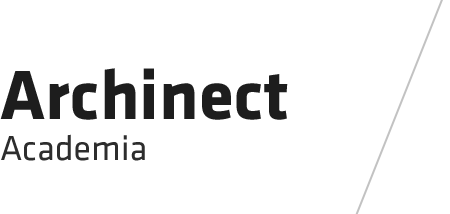
New York, NY
PLEASE NOTE: The opening reception for this exhibition will take place on Tuesday, April 2, after Torkwase Dyson's lecture in the Great Hall.
I Can Drink the Distance, a solo exhibition by artist Torkwase Dyson, the Spring 2019 Robert Gwathmey Chair in Architecture and Art at The Cooper Union, considers how the body unifies, balances, and arranges itself to move through built environments. Attuned to the shape patterns of industry—from the history of global trade to contemporary colonization and extraction—Dyson thinks through the various ways humans oppose the violence of these synergistic systems with methods of improvisation and spatial planning.
The installation consists of four relational zones, each composed of geometric and biomorphic shapes culled by deconstructing forms and patterns from industries such as agriculture, energy, and defense. The results are architectural compositions with improvisational haptic gestures, visceral interstitial space, and surreptitious objects. The installation is an invitation for the viewer to move through environmental moments that the artist constructs and recomposes throughout the run of the exhibition. The impulse to make a time-based modular installation is informed by the artist’s research in mobility, forced migration due to climate change, and the right for equitable geographies today. For the artist, this process is informed by the efficiency and insistence of black spatial liberation narratives from the transatlantic slave trade into the modern industrial revolution, in addition to the dynamic comprehension of distance and scale developed during an ongoing resistance against the horrors of environmental exploitation. This deeply human reality of black spatial history continues to reveal for the artist methods for understanding political content indelibly tied to form and perception.
The questions inherent in this project at The Cooper Union are: how can spatial perceptions and the methodological conditions of black fugitivity be scaled to create new synergetic human geographies and equity, and advance remediation practices? How can communication technology not be destructive and migration not be weaponized? How do we network to engineer space where the volume of production and consumption advances architecture, infrastructure, and ecologies for global human rights?
Torkwase Dyson was born in Chicago, Illinois, and spent her developmental years between North Carolina and Mississippi. Traversing these regions helped her develop a fundamental sensitivity towards urban development, southern landscape, and black spatial justice. During her years at Tougaloo College, where she majored in sociology and double minored in social work and fine art, she began to examine the spatial dynamics of black history and how these histories were connected geographically. Over the next 10 years, Dyson traveled to Africa and South and Central America to strategize with communities of color on ways to attain resource equality. During this time she earned her Bachelor of Fine Arts in painting from Virginia Commonwealth University and her Master of Fine Arts in painting from the Yale School of Art. In 2016 Dyson designed and built Studio South Zero (SSZ), a solar-powered mobile studio where the context of nomadicity became the framework for learning and making art about the environment. It was traveling with SSZ that inspired her experimental project The Wynter-Wells Drawing School for Environmental Liberation, where she explores contemporary theorizations of space, architecture, and the infrastructure of extraction economies.
The Robert Gwathmey Chair, a rotating professorship in art and architecture, was established by Charles Gwathmey in 1993, in honor of his father, Robert Gwathmey, a professor of art at Cooper Union from 1942 to 1968.
In conjunction with the exhibition, Dyson will give a lecture on Tuesday, April 2, in the Great Hall. For more information, please click here.
Gallery Hours
Tuesday – Friday 2-7pm
Saturday and Sunday 12-7pm